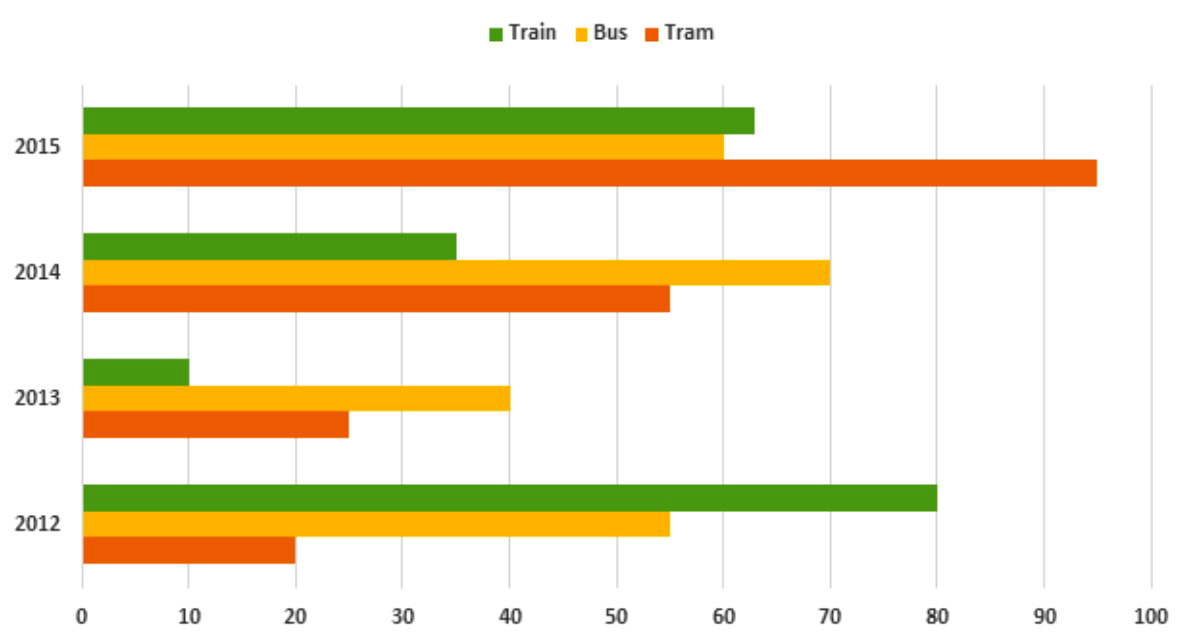The chart below shows the number of passengers who used public transport in Somewhere town from 2012 to 2015.
Write at least 150 words.

Large shopping malls are replacing small shops. Do you think it is a positive or negative development?
Give reasons for your answer and include any relevant examples from your own knowledge or experience.
Write at least 250 words.
WRITING TASK 1
The chart illustrates how many passengers used three different means of public transport in Somewhere town, between 2012 and 2015.
Overall, the number of passengers using Tram saw the biggest growth. Additionally, the figures for train passengers decreased over the period, while the number of bus passengers fluctuated slightly.
In 2012, the number of commuters using trains was the highest, at over 75,000 passengers, compared to around 55,000 bus passengers, and approximately 15,000 passengers using trams. However, in 2015, while the number of passengers on buses remained the same, trams had become the most used form of transport, at around 95,000 passengers, with figures for train passengers dropping to around 60,000 people.
Additionally, the trends of passengers in 2013 and 2014 were similar, although there was an increase in the total numbers of passengers for each form of transport over the two years. Buses were the most popular form of public transport during these years, followed by trains, and finally trams.
(161 words)
WRITING TASK 2
In recent years, there has been an increasing number of shopping malls being built, leading to the disappearance of small stores. In my opinion, this change brings about both positive and negative impacts, though the impacts are more negative in the long term.
On the one hand, the boom in the number of shopping malls has offered customers a wide range of benefits. First of all, people can now save time shopping thanks to the availability of many types of stores located in the one complex. Shopping malls offer groceries, clothing, and books, along-side food courts and entertainment facilities, all under the one roof. This provides a lot of convenience to people who choose to shop there instead of in separate smaller stores.
Moreover, shopping malls usually offer more discounts and promotions that customers can benefit from, when compared to small stores. Furthermore, smaller stores cannot usually provide customers with the added advantage of large, convenient and safe parking facilities that most shopping malls offer. As a result, more and more people are choosing to shop at large shopping malls, leading to a decrease in the number of people purchasing goods from small shops.
There are, however, a number of benefits to people and communities that shopping in smaller stores can bring. For example, locally-owned, family-run businesses are more likely to provide friendlier and better customer service than larger shopping malls and chain stores. In addition, more locally owned small businesses is better for local economies and communities in the long term, by providing more employment, profits and income to local people.
In conclusion, the proliferation of shopping malls could have positive effects on customers but it is likely to drive small local businesses out of business, and have a negative impact on local economies, with most profits being taken by non-local businesses.
(303 words)
